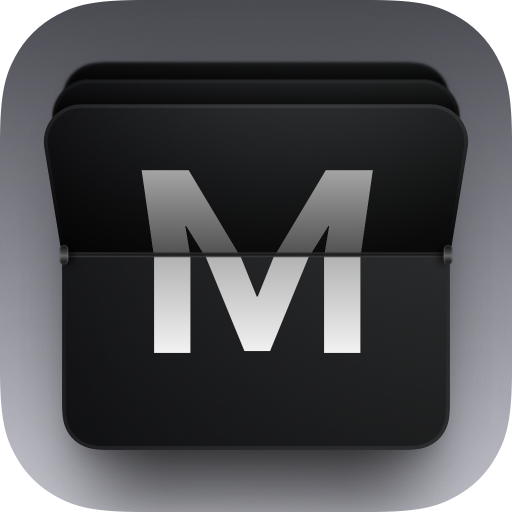Monthnotes July 2025
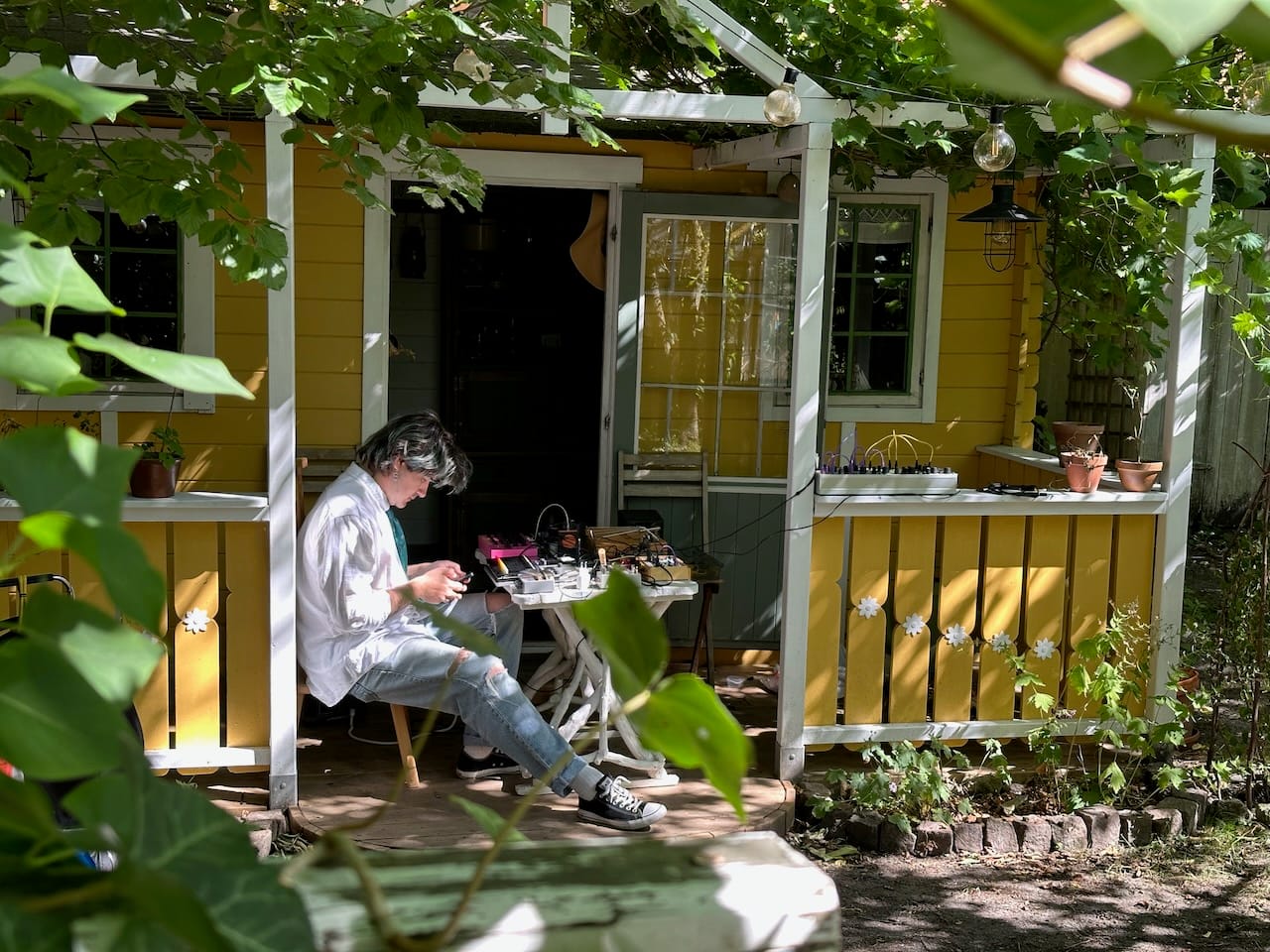
Every month or so, I share a quick digest of what I've been working on and reading. Here's the latest. More in the series here.
I'm on holiday this month. Three weeks of staycation at home, and then in the last week of July I'll be going up to Värmland for a bit of forest. I've been doing this holiday the best way I know how - which is just deciding what I want to do in the moment. Sometimes that means working on projects from the to-do list that I haven't got around to. Sometimes it means sitting on the couch and playing a videogame. Sometimes it means going to a museum, or seeing if a friend wants to get lunch. Sometimes it means playing some music. Today, it meant sending this newsletter.
One of the things I've been doing is making some updates to my gridofpoints Norns script. This is a little instrument that I've been tinkering away on, here and there, for a few years now - and it's really grown into one of my favourite ways to play music.
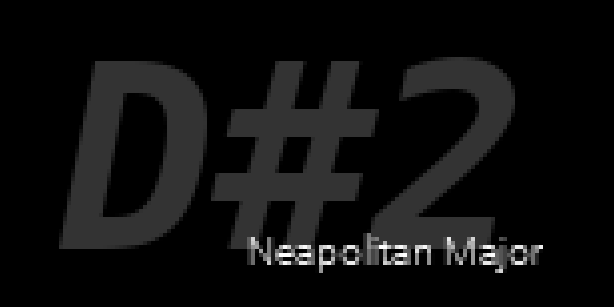
To use it, you interact with a grid of buttons - eight rows, and sixteen columns. Using the screen of the Norns, you select a combination of root note and a scale (major, minor pentatonic, dorian bebop, etc). The top row of the grid holds saved combinations (long-press to save, short-press to load). The rest of the grid is then used to play notes. Each row contains all the notes in the scale, from the root note upward. So what's the difference between rows? Well, they add a timbral parameter - it could be how long the note is held for, or (my favourite) a crossfade between a sharp square wave, and a gentle sine wave.
So basically, it's a keyboard that you can't press wrong notes on. All good so far. But where I've been exploring is something that I call "magic mode". Switch this on, and you'll start to get random notes popping up that you didn't press. Because they're only chosen from the scale you're playing it, they still sound like they fit, and you can also manually play notes at the same time. By diving into the menus, or hooking up an external controller, you can control more stuff - the probability of getting a random note, how fast they're generated, how synced to the beat they are, how they're distributed between the left and right speakers, and so on. It's perfect both for soft, generative soundscapes and for music intense beat-driven music.
One of the things I'd like to do before the month is out is record a little video that shows how it works. But there are still a few improvements I want to make first...
It's been about 10 years since solarpunk started to become a thing, and Andrew Dana Hudson has written a nice retrospective on his essay The Political Dimensions of Solarpunk.

Here's a snippet:
While these days long reads about solarpunk are thick on the ground (for years the joke was that more words had been written about the genre than of the genre), at the time it was one of a few serious treatments on the subject. It offered a definition of solarpunk that is still commonly referenced today: “a speculative movement to imagine and design a world of prosperity, peace, sustainability and beauty, achievable with what we have from where we are.” And it proposed a solarpunk slogan that struck a chord in the early days of techlash: “Move quietly and plant things.”
Read the rest of it here.
While we're talking solarpunk, I really liked this cartoon from The Lemonaut, talking about the importance of realistic solarpunk stories, grounded in the world we live in today. Fenestrate Press has reworked it into zine format, so you can print it out and fold it up into a little booklet.
I've been spending a bit of time in the last month recording, mixing and mastering various collections of music - some of which will be hopefully available to talk about soon.
So it was with great delight that I discovered Crocodile & Cube - a new shortform YouTube animation series from Michael Cusack about two friends recording music together, and all the awkwardness that ensues. It's a total joy.
Another thing I've been doing while on holiday is sorting out my infrastructure a little bit. I'm trying to make a gradual shift away from depending on Google for my entire life (Gmail, Calendar, Docs, etc). So I've registered with Protonmail (thanks Ben for the inspo) and set my domain up so my primary email address is now hello@duncangeere.com. I'm using their calendar too. For Docs, I think I've decided to stick with Google for now.
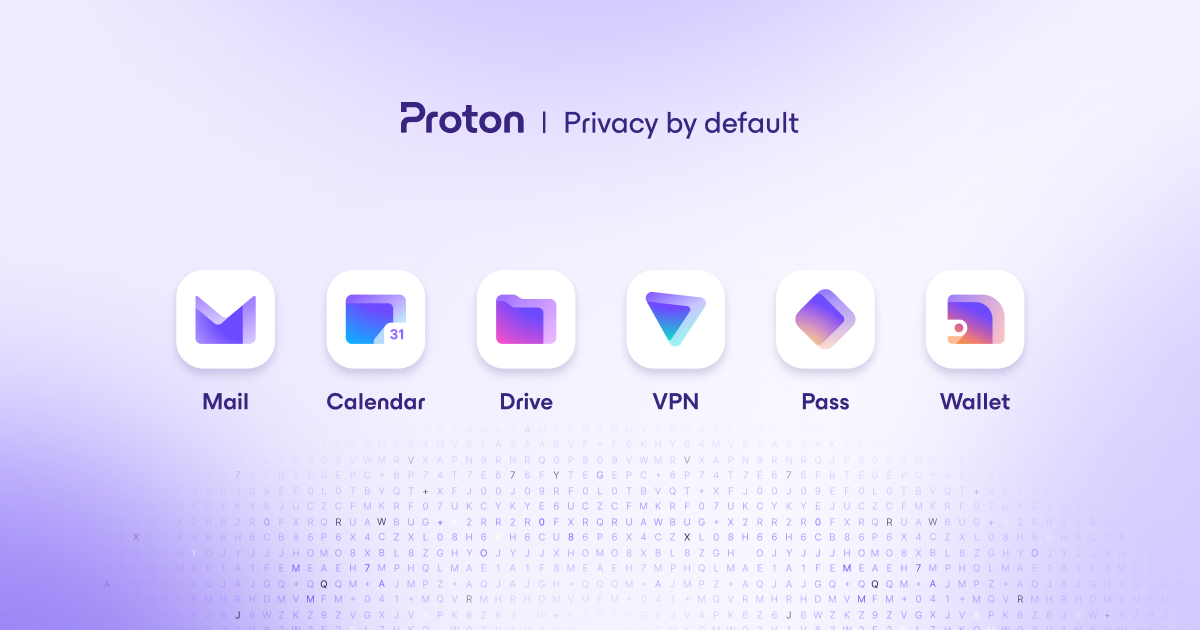
I've found shifting over my email fairly easy, but the calendar is proving to be a little more thorny - figuring out how to stay subscribed to the various external calendars I'm a part of. One thing that's helped a lot is grabbing Meetingbar - a free app that tracks your upcoming appointments across multiple calendars and lets you join them with a click of a button.

This may all fail to survive contact with reality once work kicks up again. But for now it's behaving itself. More infrastructure news as it comes.
My friend Alan is making a playlist of songs where the singer performs a little bit of another song in the lyrics - a phenomenon called interpolation. Like in David Bowie's "Young Americans" where the backing singers briefly sing "I read the news today oh boy" from the Beatles' "A Day In The Life". He's got a bunch of them, but is looking for more (samples don't count, and it has to be a different singer that's being quoted). If you've got any suggestions, hit reply and I'll pass them along.

Two AI-centric links for you today. The first is Ed Zitron's overly-long-but-really-quite-entertaining "Make Fun of Them" - about the companies that are behind the generative AI boom and how none of what they're doing is as complicated as they'd like you to believe:
I want you to know that you are fully capable of understanding all of this. I don’t care if you “aren’t a numbers person” or “don’t get business.’ I don’t have a single iota of economics training, and everything you’ve ever read me write has been something I’ve had to learn. I was a layperson right up until I learned the stuff, then I became a stuff-knower, just like you can be.
The tech industry, the finance industry, the entire mechanisms of capitalism want you to believe that everything they do is magical and complex, when it’s all far more obvious than you’d believe. You don’t have to understand the entire fundamentals of finance to know how venture capital works — they buy percentages of companies at a valuation that they hope is much lower than the company would be worth in the future. You don’t need to be technical to know that Large Language Models generate a response based on billions of pieces of training data, and by guessing at what the next bit of text in a line should be based on what it’s seen previously.
These people love to say “ah, but didn’t you see-” and present an anecdote, when no anecdote will ever defeat the basics of “your business doesn’t make any money, the software doesn’t do the things you claim it’s meant to, and you have no path to profitability.” They can yammer at you all they want about “lots of people using ChatGPT,” but that doesn’t change the fact that ChatGPT just isn’t that revolutionary, and their only play here is to make you feel stupid rather than actually showing you why it’s so revolutionary.
This is the argument of a manipulator and a coward, and you are above such things.

And then there's Total Pixel Space, a weird 10-minute video essay by Jacob Adler about the large (but finite!) number of unique images that can exist, accompanied by a lot of strange AI-generated videos that navigate that space. These videos were, of course, produced by scraping the work of most of the zillions of actual human artists who have ever lived, so YMMV, but there's still something interesting in there once you discard the AI parts.
I spent a few more holiday hours putting together a little site that rounds up some of my more artistic-oriented projects from the last few years, and uploading it at duncangeere.art. I've been starting to apply to more grants and residencies and things like that, and having one site with all my relevant stuff on it makes that a lot easier.
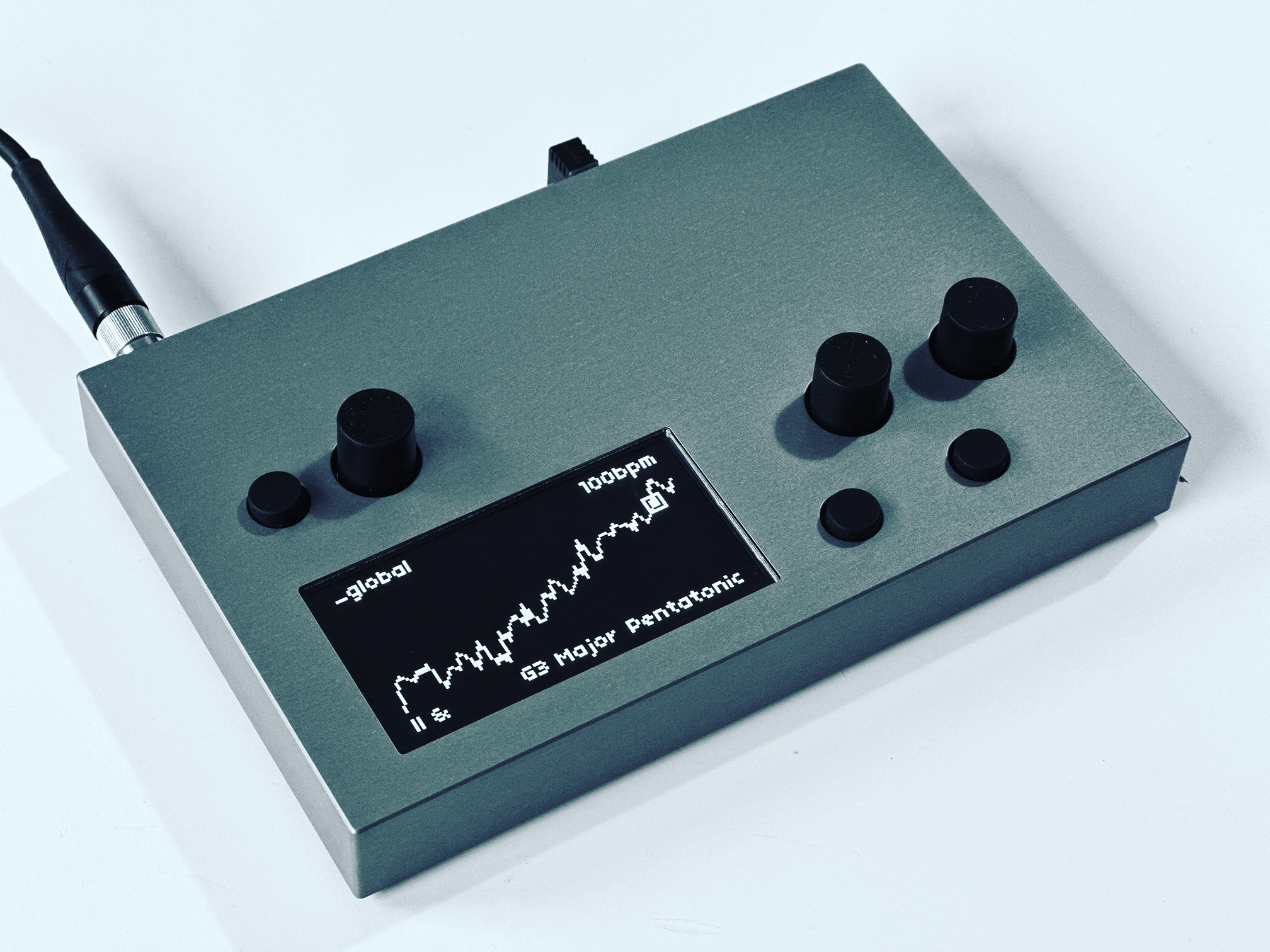
Wow, that URL share card sure says "Duncan Geere" lots of times. I'll see if I can fix that when I get a moment.
Anyway, it was quite quick and easy to do - dare I say it, it was even fun. I set up a little 11ty instance, made a project page template, made a homepage and an about page, and then filled out the rest with images and words. From there it was mostly just fiddling with the design, and getting the DNS set up.
What I like about it is that all I need to do if I want to add another project in the future is just put a Markdown file into a folder, add a pic, and then save it to Github - everything else happens automagically. You see? fun!
The moral of the story: there's still joy in technology, you just need to look for it.
Finally, have you ever wondered how email tracking works? Buttondown has a nice human-readable explanation about tracking pixels and the other strategies that marketers use to figure how how their email recipients are behaving. My fav bit:
The best email analytics is a reply, anyhow, and when you learn to let go of the open data, you might have to try harder to write in a way that’ll strike up conversation. That’s a worthwhile pursuit.

That's it for today. See you in August!
xox
Duncan
